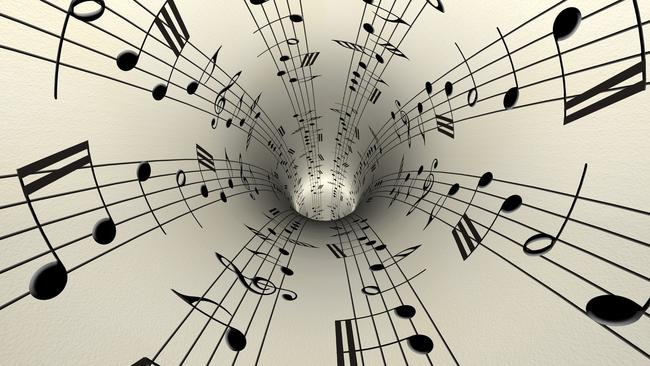Haven’t played since a teenager? Revisiting the piano as an adult
A library with a baby grand piano provides a musical reacquaintance.

Not far from my place in Sydney there’s a new library and, as public facilities go, it’s a very classy place. You enter from Green Square and go down the stairs to the bookshelves and reading area, set around a light-filled courtyard. There’s a cafe that sells spritzy alcoholic drinks. Best of all is the slimline tower building that has a music room on the fourth floor. In the middle of the room is a black baby grand piano.
For the past few years I’ve been itching to take up the piano again. I haven’t played seriously since I stopped having lessons at 18. I’d given up the practice of playing, but in time became an avid listener to music and developed a feeling of interiorised musicality. Sometimes that feeling would break out in bursts of air-conducting to Beethoven or Wagner. Now I wanted to make actual music, and try my hand at the piano after more than 30 years.
Getting hold of sheet music is not so easy in Sydney. From what I can tell, all the music shops have disappeared. They’ve gone the way of record stores and especially ones that sell classical music. The last in Sydney, Fish Fine Music, in the Town Hall Arcade, closed last year. Its managers cited the usual reasons to do with digital disruption and changing listening habits, but also the dispiriting news that theft had simply forced them to close.
I would rather support bricks-and-mortar shops and local businesses, and it’s with reluctance that I go online to buy sheet music and CDs. Even so, I was excited when a large cardboard envelope arrived from Germany, with the Barenreiter Urtext edition of Franz Schubert’s Piano Sonata in B flat, D. 960. The cover is a beautiful orange colour, and the pages are thick and creamy. The typography is a dream. It feels very grown-up, and if I were Mitsuko Uchida, or Andras Schiff, or Alfred Brendel, or another of the great interpreters of Schubert, this is the edition I’d have.
On several Friday afternoons I’ve gone to the Green Square Library and the music room on the fourth floor. It’s a place of splendid isolation. Elevated and wonderfully quiet. Floor-to-ceiling windows on three sides make it seem like a glamorous, minimalist apartment. I push the piano lid up to its highest, concert-like setting and put Schubert on the music stand.
Schubert can be a very genial and companionable composer, especially the Schubert of pieces such as the Trout Quintet, which bubbles along like a swift-flowing stream. He can also be extremely melancholy, bordering on clinically depressed. His two great song-cycles for male voice, Die Schone Mullerin and Winterreise, don’t end well. The first is a suicide by drowning and the second a wandering into madness and the icy wastes.
The Piano Sonata in B flat, in four movements, has both sides of Schubert’s personality. The implied narrative of the piece — and other listeners will have their views on this — is of an experience of psychological isolation or withdrawal, with moments of clarity, and then a return to society and conviviality. You can read all sorts of things into music. The sonata forms a triptych with the two that precede it, in C minor (D. 958) and in A (D. 959). They are the last major works for piano that Schubert wrote before his death, possibly from syphilis, at 31.
I open the B-flat sonata at the second movement, Andante sostenuto. Because it’s slow, I think it will be easy to play. At this point in the music we reach the place of desolation, in remote and inhospitable C-sharp minor. The left hand plays a rocking figure in the bass, and the right hand a spare, wintry melody. Then the key brightens to A major, and it’s like sunshine breaking through the clouds. The melancholy mood will return, but there is consolation in knowing that better days are ahead.
The keys under my fingers are firmer than I expected. I can hear the music in my mind’s ear — probably the profoundly affecting recording by Sviatoslav Richter — and knowing how I think it should go makes the playing of it a fraction easier.
There are plenty of accidentals as I stumble through a bar at a time. Benjamin Britten said of Winterreise that there are so few notes on the page. That to me is the genius and the immense difficulty of Schubert: how to make music from seemingly sparse information. The poetry lies behind the notes.
I was planning to continue my adventure with Schubert. I was looking forward to renewing my acquaintance with Bach and Beethoven, too. That won’t be happening any time soon. The library, and the piano, is closed.
READ MORE: Video: The ACO’s Satu Vanska and priceless violin | Tough, caring doctors who tell it like it is | The woman who’s making philosophy sexy again

To join the conversation, please log in. Don't have an account? Register
Join the conversation, you are commenting as Logout